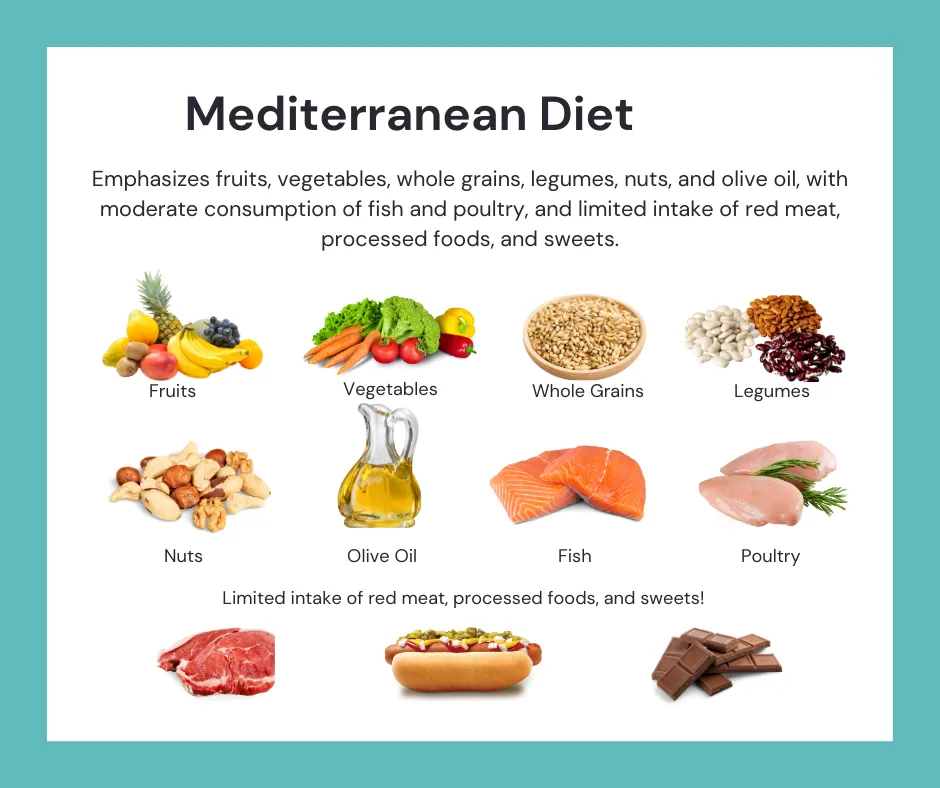
The Mediterranean Diet: A Real Food Lifestyle
When people talk about the world’s healthiest ways of eating, the Mediterranean diet consistently rises to the top — and for good reason.
Rooted in the traditional eating patterns of countries like Greece, Italy, and southern France, the Mediterranean diet emphasizes whole, nutrient-dense foods that support heart health, blood sugar balance, and long-term well-being.
Unlike trendy diets that come and go, this approach is sustainable, enjoyable, and deeply healing.
Core Components of the Mediterranean Diet
Here’s what you’ll find at the center of a Mediterranean-style plate:
Fruits and Vegetables – Rich in antioxidants, fiber, vitamins, and phytonutrients that reduce inflammation and oxidative stress. Aim for color and variety at every meal.
Whole Grains – Brown rice, farro, quinoa, and whole oats provide sustained energy and essential minerals.
Legumes – Beans, lentils, and chickpeas are protein-rich, blood-sugar-stabilizing, and supportive of gut health.
Nuts and Seeds – Almonds, walnuts, chia seeds, and flax are full of healthy fats, fiber, and minerals.
Olive Oil – The foundation of the Mediterranean diet. It’s high in monounsaturated fats and polyphenols that support brain, heart, and hormonal health.
Fish and Poultry – Consumed in moderate amounts, especially fatty fish like salmon and sardines that are rich in omega-3s.
Herbs and Spices – Used generously instead of salt to flavor food and add medicinal benefits.
Red Wine – Enjoyed occasionally and in moderation, often with meals.
What’s Limited?
One of the biggest strengths of this diet is not what’s removed, but what’s naturally reduced:
Red meat
Processed foods
Refined grains
Added sugars
Commercial desserts and sweets
Instead of relying on restriction, the Mediterranean diet crowds out the less supportive foods by emphasizing flavor, satiety, and real nourishment.
Why This Diet Works
The Mediterranean diet supports:
Heart health
Weight management
Longevity and brain function
Stable blood sugar and mood
It aligns beautifully with the principles taught by Dr. Cabral — especially when used as a post-detox or maintenance phase in a functional healing journey.
Final Thought
This is a way of eating that invites more joy, more color, and more vitality into your daily life.
It’s not about perfection — it’s about making consistent, nourishing choices rooted in real food.